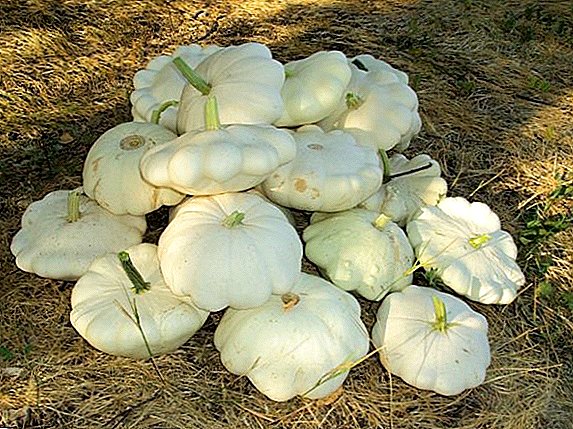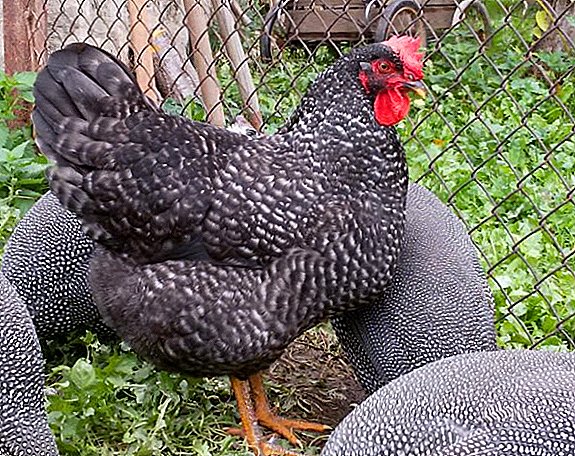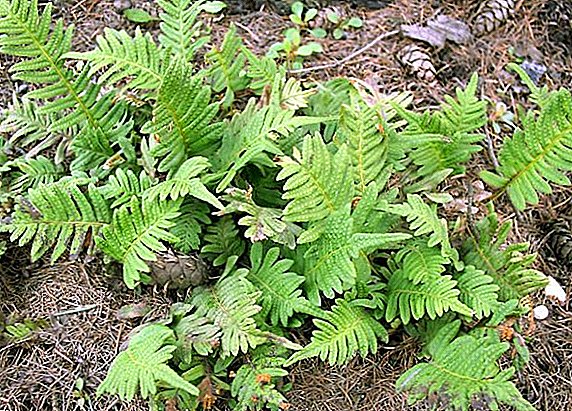 The lokhovnik, or simply the sucker, is a prickly tree-shrub. Almost all of its parts are used by man in various areas of life. But most often the fruits, flowers, leaves, bark and roots of the plant are used in traditional medicine.
The lokhovnik, or simply the sucker, is a prickly tree-shrub. Almost all of its parts are used by man in various areas of life. But most often the fruits, flowers, leaves, bark and roots of the plant are used in traditional medicine.
Sucker silver: chemical composition
Lokhovnik silver plant is rich in beneficial elements that are found in all parts of the plant. It contains: tannins, steroids, essential oil, carbohydrates, phenol carbonic acids, catechins, vitamin C, gum, cyclitols, alkaloids, flavonoids, coumarins. The seeds and bark are rich in alkaloids, and the leaves - in vitamin C (up to 350 mg). But The fruits of the plant are considered the most useful. They contain potassium, phosphorus salts, organic acids, coloring and nitrogenous substances, glucose and fructose, protein (approximately 11%), tannin (36%), sugar (up to 40%).
Useful properties of the sucker silvery
 Since ancient times, the silver sucker is known for its healing properties. People used it as an astringent, making the fruit or leaves of the shrub. Fresh-leaf gruel helps with purulent wounds, since the plant is known as a healing and anti-inflammatory agent.
Since ancient times, the silver sucker is known for its healing properties. People used it as an astringent, making the fruit or leaves of the shrub. Fresh-leaf gruel helps with purulent wounds, since the plant is known as a healing and anti-inflammatory agent.
Due to antipyretic and expectorant properties, it is used for colds, fever, angina. Another property of the plant is that it fights well against various bacteria and microorganisms, especially with helminths. Flowers are able to treat hypertension, heart ailments, and the leaves - to remove rheumatic, radiculitis pain. The bark of the sucker silvery is used as a remedy against diarrhea.
Did you know? Homeland of the plant is Central China. Even the ancient Chinese considered it a magical plant. It was believed that it can give the body strength and return youth.
An important advantage of the plant over others is non-toxic and hypoallergenic. It has a mild effect, so it is recommended for the treatment of even children.
Use in traditional medicine
Based on a wide range of useful properties, it is not surprising that the silver leafer in folk medicine has been used for a long time and often. Especially popular are the fruits of the plant. In addition to having a tonic and restorative effect on the body, they can improve memory, cure gastric diseases, and support the cardiovascular system.
Did you know? Gum plants used to be widely used for the manufacture of paints, adhesives, varnishes, typography. She was painted black and brown fabric, used in the process of tanning leather. Wood is used in the manufacture of musical instruments.
Tincture for gargling
 The leaves of the sucker are often used in various inflammatory processes in the oral cavity, as well as in diseases of the respiratory tract. For the treatment of them prepare a variety of infusions and tinctures. One and a half tablespoons of the crushed raw materials pour in 200 ml of boiling water and incubate for about half an hour. Then the infusion is filtered through loose tissue and used for treatment. The same infusion can be drunk with bronchitis, a cold three times a day after meals for a quarter of a glass.
The leaves of the sucker are often used in various inflammatory processes in the oral cavity, as well as in diseases of the respiratory tract. For the treatment of them prepare a variety of infusions and tinctures. One and a half tablespoons of the crushed raw materials pour in 200 ml of boiling water and incubate for about half an hour. Then the infusion is filtered through loose tissue and used for treatment. The same infusion can be drunk with bronchitis, a cold three times a day after meals for a quarter of a glass.
Important! There are several varieties of lokhovnik: silver, the fruits of which have antibacterial and antiviral properties; narrow-leaved, the most valuable part of which is the leaves; many-flowered, perishable fruits of which are considered the source of youth; an umbrella, from the berries of which amazing jams and wine are made.
Tincture with hypertension
In the treatment of this disease is used tincture of flowers sucker. To prepare it, take 100 g of raw material, pour it into a glass container and pour it with a liter of wheat vodka. It is important that the container be with dark glasses and it can be tightly closed. Infuse the tool should month. Drink tincture diluted in water, 20 - 25 drops.
Broth for diseases of the respiratory system
In the case of respiratory diseases, it is recommended to prepare a decoction of berries. On 250 g of water take 30 g of fruit and boil them for 5 minutes. Then the decoction is removed from the heat and insist two hours. The filtered medium is drunk twice a day, approximately 125 ml.
Decoction against worms
 A decoction of Loch berries can be used in the fight against worms. To do this, two tablespoons of the fruit is poured with hot water (250 g) and kept in a water bath for half an hour with the lid closed. When the broth is cooled slightly, but is still warm, filter it and add another 250 g of water. Drink it too warm to 30 grams before meals about 4 times a day. The liquid is kept in the refrigerator for no more than two days.
A decoction of Loch berries can be used in the fight against worms. To do this, two tablespoons of the fruit is poured with hot water (250 g) and kept in a water bath for half an hour with the lid closed. When the broth is cooled slightly, but is still warm, filter it and add another 250 g of water. Drink it too warm to 30 grams before meals about 4 times a day. The liquid is kept in the refrigerator for no more than two days.
Important! If you receive nausea while drinking broth, drink it after a meal.
There is a simpler recipe. When 50 g of berries pour a glass of water and boil for a couple of minutes. After cooling, the resulting broth is drunk two or three times a day.
Broth for washing wounds
As already mentioned, silver sucker perfectly reduces inflammation and has a healing effect - its fruits have been used in the treatment of wounds. For this, two tablespoons of berries are poured with a glass of water, brought to a boil and kept in a boiling state for about five minutes. Then leave for two hours, filter and used for washing wounds.
Poultice for rheumatism
To relieve rheumatic pains, use the leaves of the sucker silvery. About 100 g of raw materials are collected from the bush, steamed for 15 minutes and folded in the form of a pad, which is applied to the hearth for half an hour. After use, these leaves are thrown away, and for the next time new ones are picked up.
Febrifuge
 Removes the heat of a decoction of the fruits of the shrub. It can be prepared according to any of the methods described above, but it can be stored for no more than two days. Then you need to cook fresh.
Removes the heat of a decoction of the fruits of the shrub. It can be prepared according to any of the methods described above, but it can be stored for no more than two days. Then you need to cook fresh.
To this end, you can use the leaves and flowers of the plant. 6 g of this mixture is poured with a glass of hot water and kept in a water bath for 15 minutes. After cooling, filter and drink no more than three times a day for 60 g.
The benefits of the bath of sucker silver
Thanks to the healing and anti-inflammatory effect of the bath with the addition of silver-sucker broth, it has a beneficial effect on the skin. In addition, they dry it less, compared to other herbs that are often used for baths. Therefore, the sucker is recommended to use when bathing babies whose skin is especially delicate.
Important! The silver sucker is an excellent honey plant whose nectar is very much loved by bees. Silver Loss honey has a delicate, rich and delicate taste and does not crystallize for a long time. The composition of the product includes a large amount of glucose, so it is recommended for diabetics. It is noticed that it helps relieve fatigue, relieves nervous tension and irritability. In addition to improving immunity, it is able to relieve inflammation in the intestines, stomach, cleanse the liver.
Application in cosmetology
These useful properties of the plant are used in cosmetology. Cosmetics with the use of sucker help fight skin rashes, relieve inflammation and nourish the skin with vitamins. From the flowers of the plant extract oil, which is used in perfumery. At home it is recommended to prepare a decoction of leaves and flowers for washing. On a liter of water is taken two tablespoons of dry raw materials, which are brewed and infused. After cooling, the broth is passed through a double cheesecloth and used for washing.
How to use in aromatherapy
 Extracted from the flowers, the essential oil is used in the preparation of aromatic blends for aroma lamps. In addition to flowers, the leaves of the plant have a delicate aroma - they also contain useful oils. Therefore, in the aromatic sachets add a mixture of these two ingredients.
Extracted from the flowers, the essential oil is used in the preparation of aromatic blends for aroma lamps. In addition to flowers, the leaves of the plant have a delicate aroma - they also contain useful oils. Therefore, in the aromatic sachets add a mixture of these two ingredients.
Harvesting and storage of raw materials from silver
For blanks use almost all parts of the plant. At first, it is time to gather flowers. They appear in May and hold until mid-June. At this time, they are removed for blanks with pritsvetkovymi leaves. The first month of summer is the time to gather the leaves of the shrub. Accordingly, the fruits are harvested closer to the fall as they mature. When harvesting it is better to choose a shrub that has fewer spines. It will not affect the quality of raw materials, and it will be more convenient to collect it.
How to dry raw sucker? Almost the same as other plants, but with some features. So, it is possible to dry the blanks in special dryers, but for flowers the temperature should not exceed 40 ° С, and for leaves and fruits - 50 ° С. Drying can be carried out naturally in a dark ventilated room.
Did you know? TTraditional medicine actively uses the silver goof in the manufacture of drugs with anticholinergic action. The action of such drugs is aimed at improving the functioning of the organs of the heart, respiration, stomach, intestines, pancreas, kidneys.
Blanks are stored no more than two years, and the color of the sucker - no more than a year. After these periods, they gradually lose their useful properties.
Contraindications
 It is believed that the silver sucker does not harm the body, in whatever quantities it was taken. The only exception may be individual intolerance. With care and only on the recommendation of a doctor should take it pregnant and lactating women.
It is believed that the silver sucker does not harm the body, in whatever quantities it was taken. The only exception may be individual intolerance. With care and only on the recommendation of a doctor should take it pregnant and lactating women.
It is safe for children under 12 to take only the fruits of the shrub, and then only boiled. In addition, no parts of the plant can be taken in the following cases:
- renal failure;
- fever, the nature of which is unknown, especially if the temperature rises to 40 ° C and above (in this case, an ambulance must be urgently called).
- 20 days for infusion;
- 2 days for fruit decoction;
- 7 days for decoction of leaves;
- 2 years for honey.
The sucker silver is a thorny shrub that has been used in traditional medicine for a long time to treat all sorts of inflammations, diarrhea, and also as a rich source of vitamins and trace elements. Traditional medicine has also appreciated its favor by releasing drugs based on it for the treatment of cardiovascular diseases, diseases of the intestinal tract, and the respiratory tract. Everyone can easily prepare the raw materials of the silver sucker and prepare healing agents.












